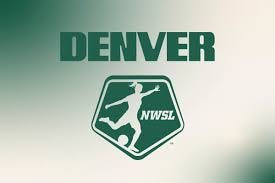If you’ve been following women’s soccer in the U.S., you know we’re watching history unfold in real time. The NWSL is bigger than ever, breaking attendance records, drawing global stars, and proving that the demand for women’s soccer is unstoppable. But the real game-changer?
Boston and Denver are on deck as the next cities to join the league, and their arrival is about more than just adding teams. It’s about bringing professional women’s soccer to passionate fan bases, expanding opportunities for players, and making sure the U.S. remains the best place in the world to play.
For the league, for the players, and for the future of women’s soccer, these additions couldn’t come at a better time.
Boston Is Back
If you were a fan of the Boston Breakers, you already know this city should have never lost its place in the NWSL. The Breakers were part of the league from day one, carrying over from the days of WPS and WUSA. But in 2018, they folded, leaving Boston without a team and breaking the hearts of a fan base that had supported women’s soccer for years.
Boston is coming back to the NWSL with something to prove, and they have the potential to be one of the league’s premier franchises from day one. Now, Boston is getting a second chance, and the energy around this return feels different.
What does that mean?
A true soccer city: Boston already has one of the best soccer cultures in the U.S. Between the Revolution, the city’s deep college soccer roots, and the massive following for international teams, the fan base is already built-in.
A historic sports town: Boston doesn’t do sports halfway. Whether it’s the Red Sox, Celtics, Bruins, or Patriots, the city knows how to show up for its teams. Expect that same energy for NWSL games.
A pipeline for local talent: The Boston area has always been a powerhouse for women’s soccer. Some of the best players in U.S. history—like Sam Mewis and Kristie Mewis—came from Massachusetts. Now, young players in the region will finally have a professional team to look up to.
One of the unexpected twists in Boston’s NWSL return has been the controversy surrounding the potential team name, Bos Nation. Many felt the name lacked the historic and cultural depth that Boston sports teams are known for, with some calling it more fitting for a fan club than a professional franchise. Supporters took to social media, advocating for something more reflective of the city’s rich soccer legacy and competitive spirit. The backlash has put pressure on the ownership to reconsider, ensuring that Boston’s return to the league comes with a name that fans can truly rally behind.
Denver: The Mile-High Game-Changer
While Boston is reclaiming its place, Denver is stepping onto the NWSL stage for the first time. And honestly? It’s about time.
Denver has always been a soccer city. The Colorado Rapids have one of the most passionate MLS fan bases, and the city has produced some of the biggest names in U.S. soccer—most notably Lindsey Horan and Mallory Swanson. There’s already a deep love for the game, and with the right investment, an NWSL team could thrive here.
Why is Denver such an exciting market?
The altitude advantage: Playing at 5,280 feet isn’t easy for visiting teams. If Denver builds a roster designed to run opponents into the ground, they could become one of the toughest away trips in the league.
A young, sports-crazy fan base: Denver is one of the best sports towns in America, and its fans show up no matter what. Whether it’s the Nuggets, Broncos, Avalanche, or Rockies, people care about their teams here. An NWSL team would be no different.
A chance to attract top talent: Imagine a club built around dynamic, high-energy players who thrive in altitude. Denver could become a destination for both young U.S. stars and international players looking for a competitive edge.
Much like Salt Lake City did when the Utah Royals first launched, Denver has the potential to be a perfect home for an NWSL team.
What This Expansion Means for the League
Bringing teams to Boston and Denver isn’t just about adding more games to the schedule. It’s about changing the landscape of women’s soccer in the U.S.
More teams = more roster spots: Expansion means more opportunities for players. Right now, the NWSL is so competitive that top American talent is heading overseas because there aren’t enough spots at home. With Boston and Denver joining, we could see fewer U.S. stars choosing Europe and more staying in the league.
A more balanced, competitive league: Every new team brings new rivalries, new fan bases, and new challenges for existing clubs. The NWSL is already one of the most unpredictable leagues in the world—expansion will make it even more exciting.
Stronger youth pathways: With Boston and Denver in the league, young girls in New England and Colorado will finally have local NWSL teams to dream of playing for. That kind of representation matters.
We’ve seen what happens when an expansion team is done right—San Diego and Angel City both became instant contenders and set attendance records. Now, it’s Boston and Denver’s turn to make their mark.
The Future Is Bright
With Boston reclaiming its spot in the league and Denver bringing high-altitude energy to the NWSL, the future has never looked better. These cities aren’t just getting teams—they’re getting the chance to shape the next era of women’s soccer.
And if history has taught us anything, it’s that when you bet on women’s sports, you win.
Get ready, because the next chapter of the NWSL is just getting started.




